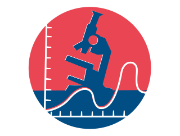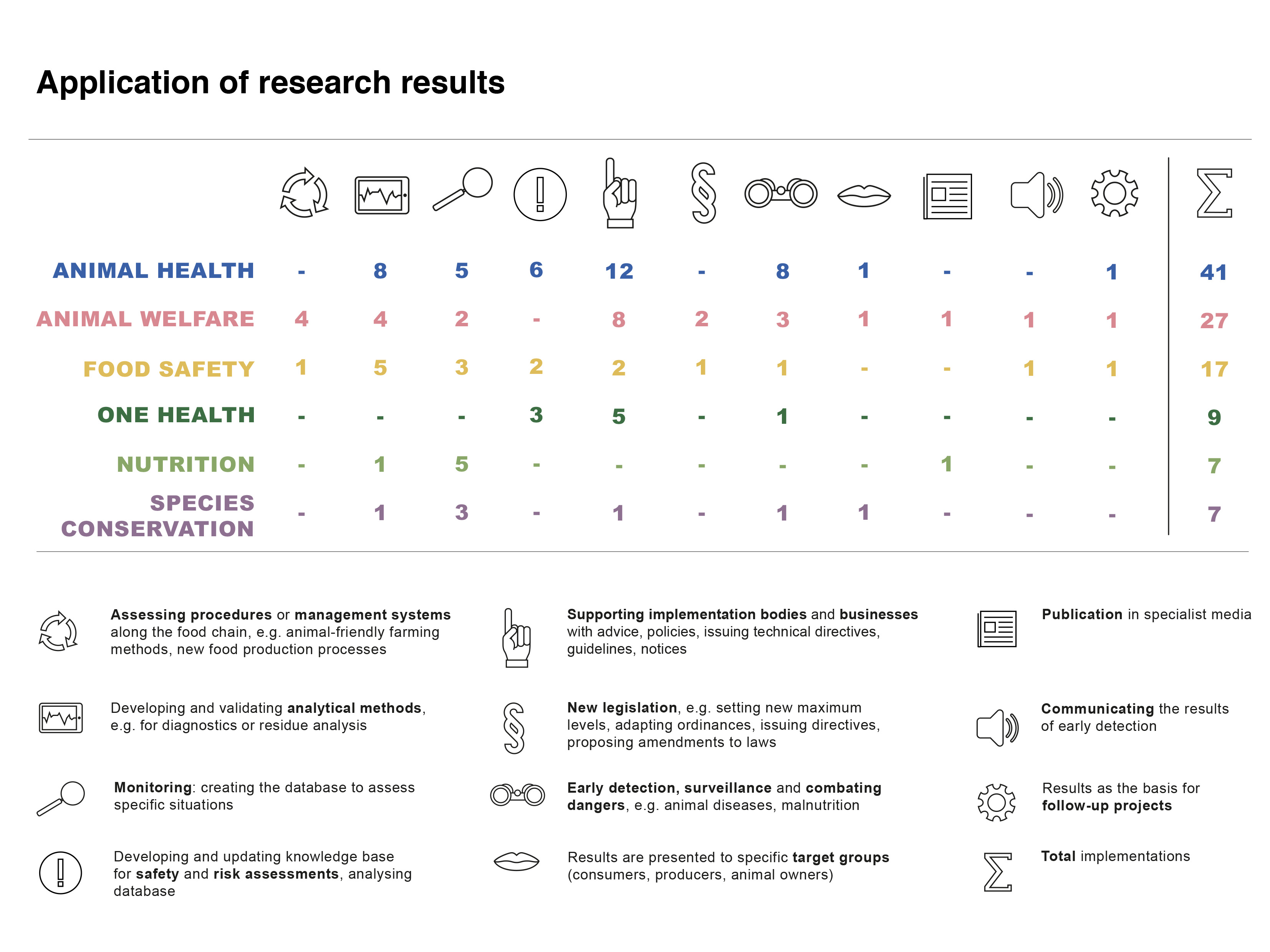From 2017 to 2020, the FSVO conducted a total of 172 research projects. The results from this departmental research serve as a scientific basis that enables the administrative units to achieve their operational goals.
From 2017 to 2020, the FSVO conducted a total of 172 research projects. The results from this departmental research serve as a scientific basis that enables the administrative units to achieve their operational goals.

Compared with the previous period which comprised five years, the 2017 – 2020 reporting period covers four years – from 01 January 2017 to 31 October 2020.
The following statistical information is based on figures from the ARAMIS research database.
The “New research projects” category takes into account research projects that started after 1 January 2017. There are a total of 70 projects in this category, 33 of which have an end date after 31 December 2020. Most projects are related to Animal Health (29 projects), Food Safety (18 projects) and Animal Welfare (16 projects). The rest are species conservation projects (3 projects), nutrition projects (3 projects) and one communication project. The Food Safety category also includes projects concerning the safety of commodities.
The “Completed research projects” category comprises all research projects completed before the end of 2020, which is a total of 108 projects over four years – an average of about 27 projects per year. This is comparable to the previous period (an average of about 33 projects per year). The majority of completed projects (93 projects, 86%) were implemented by external research institutes on a contractual basis. In 16 cases, the project was completed internally (15%). The standard project duration is between two and four years.
The majority of the projects completed were concerned with Animal Health, as was the case in the 2012 – 2016 period, followed by Animal Welfare and Food Safety. Projects implemented in accordance with the interdisciplinary One Health approach are now included as a separate category.
The implementation objectives of the research projects completed by the end of 2020 largely served to support enforcement authorities and to create databases for assessing specific situations.

In den meisten Fällen (149) hat das BLV Projekte von externen Forschungseinrichtungen unterstützt oder Projekte bei externen Forschungseinrichtungen in Auftrag gegeben (extramuros). Die restlichen 23 Projekte wurden in den eigenen Forschungseinrichtungen des BLV realisiert (intramuros).
In der Berichtsperiode 2017-2020 wurden die meisten Forschungsprojekte (51) an Universitäten vergeben. Je nach Anforderungen konnten weitere private und/oder bundesnahe Forschungseinrichtungen die Forschungsarbeiten durchführen. 16 Projekte wurden in unseren eigenen Forschungsstätten bearbeitet, also von den BLV-Laboren und dem Team der Abteilung Tierschutz in Tänikon.
The FSVO invested CHF 4.2 million annually in research projects between 2017 and 2020 – an annual reduction of CHF 1.4 million per year compared to the previous 2012 – 2016 period (CHF 5.6 million per year). In 2017, the FSVO invested around half a million Swiss francs less in research than it did in other years. This is partly due to the fact that the contribution to the 3R Research Foundation was not paid out in 2017 and investments in contract research remained lower. The tasks of the 3R Research Foundation were taken over by the Swiss 3R Competence Centre (3RCC). Contrary to original assumptions, however, it was not yet able to begin its activities in 2017.
Year |
2017 |
2018 |
2019 |
2020 |
|---|---|---|---|---|
Commissioned research (extramuros) in thousand CHF |
3,084 |
3,472 |
3,295 |
3,322 |
Commissioned research (intramuros) in thousand CHF |
309 |
592 |
448 |
627 |
Contributions in thousand CHF |
123 |
583 |
448 |
449 |
Total/year |
3,516 |
4,647 |
4,191 |
4,398 |
During the reporting period, research in Animal Health was mainly concerned with:
The 27 Animal Welfare projects pursued very different implementation goals. Assessing animal farming systems, such as housing and breeding, in particular, plays an important role in this case.
The projects carried out in Food Safety were mainly concerned with:
The seven Nutrition projects were essentially concerned with monitoring nutrients in our diet. They also investigated the extent to which the population follows existing recommendations.
The aim of Species Conservation projects was mainly to improve our knowledge of compliance with species conservation regulations in international trade (e.g. endangered plant species such as Palisander or rosewood) and to support the implementation of legislation.
Last modification 12.03.2024